Unlock a Pain-Free Life: Understanding Chronic Pain and Treatment Options
Chronic Pain
Chronic pain is characterized by persistent or recurring discomfort that lasts for an extended period, typically beyond three months. Unlike acute pain, which is a normal response to injury or illness and serves a protective function, chronic pain persists long after the initial cause has healed. It can affect various parts of the body and may be constant or intermittent.
There are several potential causes of chronic pain. It can arise from conditions such as arthritis, cancer, or other long-lasting illnesses that continually generate pain signals. Injuries or diseases may also lead to changes in the body, making individuals more sensitive to pain even after the initial problem has been resolved. Additionally, some individuals experience chronic pain that is not directly tied to a physical injury or illness; this is often referred to as psychogenic pain or psychosomatic pain, and it can be influenced by psychological factors such as stress, anxiety, and depression.
Chronic pain can significantly impact a person's daily life, hindering their ability to work, engage in social activities, and take care of themselves or others. It may also contribute to the development of secondary issues like depression, anxiety, and sleep disturbances, creating a challenging cycle that can be difficult to break. Treatment for chronic pain often involves a multidisciplinary approach, combining medical, psychological, and lifestyle interventions to improve the individual's quality of life.
What does chronic feel like?
Chronic pain can manifest in various ways, and its perception is subjective, varying from person to person. Individuals experiencing chronic pain may describe it in different ways, and the sensations can range from dull and aching to sharp, throbbing, burning, or shooting. The pain may be localized to a specific area or widespread throughout the body.
Patients have been known to describe chronic pain by the following, Dull Ache: A persistent, mild discomfort that may be difficult to pinpoint. Throbbing Pain: A rhythmic pulsing sensation often associated with vascular or inflammatory conditions. Burning Sensation: A feeling of heat or burning, which can be indicative of nerve-related pain. Stabbing or sharp: Intense, piercing pain often associated with nerve compression or injury. Tingling or numbness: A feeling of pins and needles or loss of sensation, often related to nerve involvement. Tightness or stiffness: A sensation of tension or restriction in the affected area.
The emotional impact of chronic pain is also significant. It can lead to frustration, irritability, anxiety, and depression. Chronic pain is not only a physical sensation but can also affect a person's overall well-being, influencing their mood, sleep patterns, and daily activities.
Chronic pain is complex and multifaceted, often involving both physical and psychological components. The perception of pain is influenced by various factors, including the individual's pain threshold, emotional state, and overall health.
Are you one of the millions of Americans suffering from Chronic Pain?
Diagnosis and Treatment for Chronic Pain
What tests are used to diagnose chronic pain?
Chronic pain and inflammation can be hard to diagnose, that is why your doctor may order any number of tests to determine the cause of the pain.
- Blood and urine tests including: Erythrocyte sedimentation rate (ESR) and C-reactive protein (CRP) are used to check the levels of inflammation in your body.
- Electromygraphy or EMT can be used to test muscle response and activity
- Often imaging tests such as X-rays and MRI are used to rule out injury
- Nerve conduction studies to see if your nerves are reacting properly.
- Your physician may order spinal fluid tests to check for infection
Management and Treatment
How is chronic pain treated?
Once it has been determined that there is not an underlying cause for the pain due to injury of the muscles, tendons, joints or ligaments. Your healthcare provider will begin to manage and treat the pain.
Pain Management Specialist treat chronic pain in many different ways. To learn about the various treatment options continue reading our clicking the button below.
Blog posts
View all-

The Rise of Shockwave Therapy: A Game-Changer i...
In recent years, shockwave therapy has gained immense popularity as a non-invasive treatment for various musculoskeletal conditions. From athletes recovering from injuries to individuals suffering from chronic pain, this innovative...
The Rise of Shockwave Therapy: A Game-Changer i...
In recent years, shockwave therapy has gained immense popularity as a non-invasive treatment for various musculoskeletal conditions. From athletes recovering from injuries to individuals suffering from chronic pain, this innovative...
-

Shockwave Therapy for Pain Management: A Game-C...
Is Shockwave Therapy Right for You? If you’re dealing with chronic pain, sports injuries, or joint discomfort, shockwave therapy offers a safe, effective, and non-invasive solution. By stimulating healing, reducing...
Shockwave Therapy for Pain Management: A Game-C...
Is Shockwave Therapy Right for You? If you’re dealing with chronic pain, sports injuries, or joint discomfort, shockwave therapy offers a safe, effective, and non-invasive solution. By stimulating healing, reducing...
-

Unlocking the Value: Why Upgrading from a 10+ Y...
In the rapidly evolving field of medical technology, staying up-to-date is crucial for delivering the best patient care and maintaining a competitive edge. If you’re still using a 20-year-old C-Arm,...
Unlocking the Value: Why Upgrading from a 10+ Y...
In the rapidly evolving field of medical technology, staying up-to-date is crucial for delivering the best patient care and maintaining a competitive edge. If you’re still using a 20-year-old C-Arm,...







